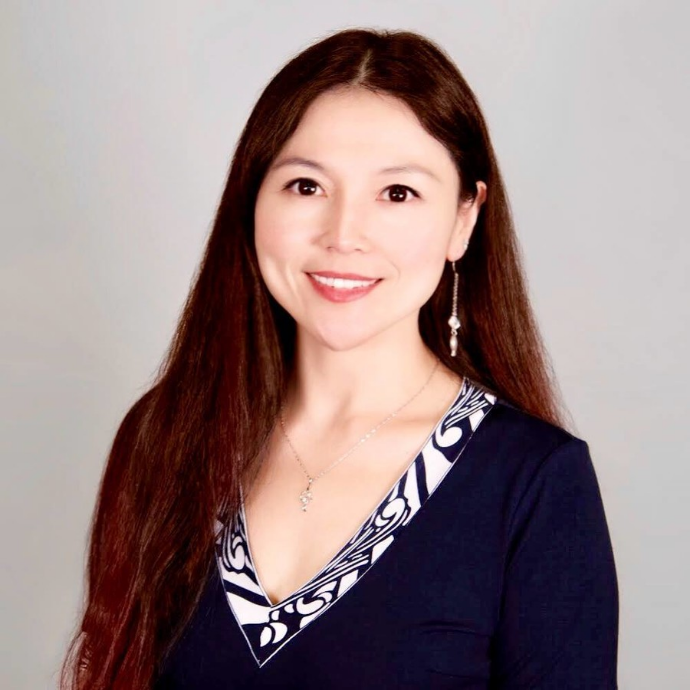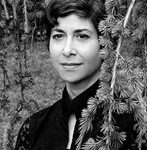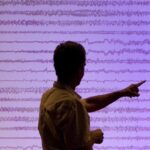Heart Sutra: An Augmented Reality Installation is a futurist expression of the Prajnaparamita Heart Sutra, integrating chanting in Chinese, Korean, and Japanese. It draws upon the sacred expressive traditions in chanting, drumming, architecture, ink art, and figurative representations of the divine found throughout the Buddhist world. Meanwhile, the artists, who are classically trained in these traditions, intentionally transpose these time-tested expressions with algorithm-driven futurist visual dynamics and technology-packed acoustic techniques such as electronic music and surrounding sound. The result of the multimedia collaboration is then video mapped onto Stanford University’s sacred historical monument, Memorial Church. Altogether, the augmented reality piece incorporates layers of complexity and symbolism. That is the message and metaphor of this piece: we build a future not on an empty slate but by fully acknowledging the nuances of the past and carrying forward that which is life-giving.
Selected Screening & Awards:
- Closing Feature: Stanford Festival of Reflection and Renewal
- Award Winner: Cuckoo International Film Awards
- Golden Diamond Award: sian Film Festival, Los Angeles Hollywood
- LA Independent Women Film Awards
- Toronto International Women Film Festival
- Berlin International Art Film Festival
Contributing Artists:

Rebecca Nie
Z.M. Rebecca Nie is the Buddhist Chaplain at Stanford. She is also a Stanford alum, Zen Master of the Korean Jogye Order, and an established Californian visual artist. As an heir of one of the oldest living mystic orders, she creates to artistically invite the audience into Zen encounters that are direct experiences of the transcendental. The inspiration for Z.M. Nie’s art comes from her introspection, global adventures, and attainment in diverse disciplines.

Jiayue Wu
Dr. Wu is an award-winning scholar, musician, and audio engineer. She has 10 years of diversified work experience in music and media technology companies such as Universal Music Group, EMI, and Shazam. She holds a Master of Arts degree from Stanford University and a Ph.D. degree from the University of California Santa Barbara. Her research focuses on how music technology can augment the healing power of music. Her music has been performed in Asia, the U.S., Canada, Australia, South Africa, Brazil, and Europe. Currently, Dr. Wu is an assistant professor at the University of Colorado’s College of Arts and Media. She is the chairperson of the Diversity & Inclusion Committees at both Audio Engineering Society (AES) and Colorado MahlerFest. She also serves as a voting member of the Recording Academy and the Editor-in-Chief of the Society for Electro-Acoustic Music in the US (SEAMUS).

Scott Miller
Dr. Miller is a Professor of Music at St. Cloud State University, Minnesota. Best known for his electroacoustic chamber music and ecosystemic performance pieces, his music is characterized by collaborative approaches to composition and the use of electronics, exploring performer/computer improvisation and reimagining ancient compositional processes through the lens of 21st-century technology. He is Past-President of the Society for Electro-Acoustic Music in the US (SEAMUS) and presently the Director of SEAMUS Records.

Jane Rigler
Dr. Rigler is a flutist, composer, educator, and producer. She is known for her innovations in new flute performance, techniques, and unique musical vocabulary. Dr.Rigler is an associate professor in the Music Program within the Visual and Performing Arts Department at the University of Colorado at Colorado Springs.

Chris Chafe
Professor Chris Chafe is a composer, improviser, and cellist, developing much of his music alongside computer-based research. He is the Director of Stanford University’s Center for Computer Research in Music and Acoustics (CCRMA). An active performer either on the net or physically present, his music reaches audiences in sometimes novel venues. Chafe’s works include gallery and museum music installations which are now into their second decade with “musifications” resulting from collaborations with artists, scientists, and medical doctors.